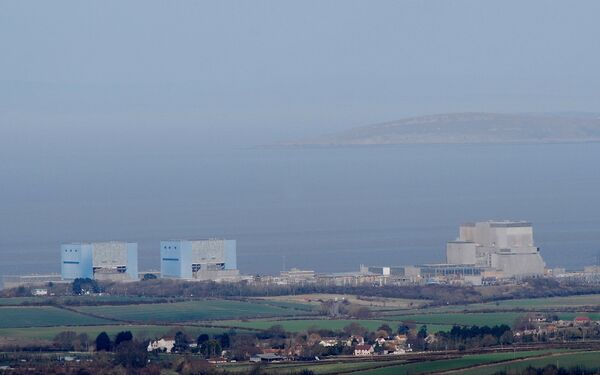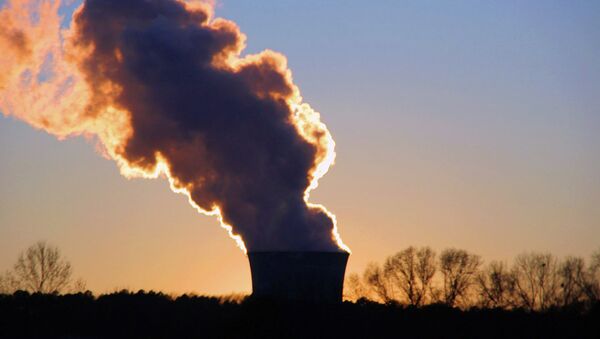The proposed new nuclear power station in Somerset — Hinkley Point C — is set to cost British taxpayers £20 billion more than predicted in subsidies over its lifetime, according to environmental groups.
This week, the Austrian government confirmed it is to take the European Commission to the European Court of Justice over its agreement to a deal that would allow EDF Group and the UK Government to build a new nuclear power station at Hinkley Point C in Somerset at an estimated — but much disputed — cost of £16 billion.
The agreement contains a controversial promise that the UK Government will guarantee the "strike price" (a guaranteed minimum energy price) for Hinkley Point C of £92.50 per MWh. Effectively, the Commission has agreed state subsidies by the UK Government.
Non-nuclear Austria, which has a strong policy on green energy, has threatened to take the Commission to the European Court of Justice on the ground that its decision over Hinkley Point C constitutes illegal state aid, by guaranteeing a "strike price".
Independent energy supplier Ecotricity told Sputnik UK it is among other companies and organisations considering joining the legal challenge against the European Commission decision.
Public Subsidy Way out of Line
However, the environmental activist group Greenpeace disputes even the figures of the proposed nuclear plant. EDF claims that the total construction costs for the two nuclear power units at Hinkley Point C — expressed in 2012 money — are expected to be £16bn.
Comment: Why is Hinkley a bad deal for the UK consumer?http://t.co/fbIIlsqALU < Greenpeace UK's chief scientist explains
— Greenpeace UK (@GreenpeaceUK) October 8, 2014
However Greenpeace UK chief scientist Doug Parr says the figures are incorrect. The Commission made its decision by estimating the deal will cost up to £17.6bn in subsidies from the British energy bill payer, under the "strike price" agreement.
"According to my calculations the total (undiscounted) subsidy to Hinkley over its lifetime would be much higher at £37bn, with a £14 increase per household per year. This is based a 35-year index-linked price guarantee (‘strike price') of £92.50 per MWh, which is almost twice that of the UK wholesale electricity market price of around £50/MWh. This means that the British public funds the difference between the amount EDF will be paid and the market price," said Parr.
Stop Hinkley welcomes Austrian Government’s legal move against Hinkley http://t.co/Rgtbv1jFJM
— Stop Hinkley (@stophinkley) January 23, 2015
Stop Hinkley Spokesperson, Alan Jeffery told Sputnik UK:
"If Hinkley C goes ahead it would be the most expensive project of any kind ever built, yet it is not what is needed. What people want are warm homes, efficient appliances and bills that are affordable. We need renewable energy sources that aren't going to damage our climate. We don't need a massive project that is going to leave us with a legacy of highly dangerous nuclear waste and radioactive emissions into our environment."
Cracks, Weird Welds and Delays
The Hinkley Point C proposal has already been hit by many years of delay — mostly because the reactor it is considering using has been plagued with problems. EDF has chosen the European Pressurised Reactor (EPR), a third generation pressurised water reactor (PWR) design. It has been designed and developed mainly by Framatome (now Areva), EDF in France and Siemens in Germany.
However, the first ever EPR nuclear power station under construction in Flamanville, in northwest France, is already massively over budget and seriously delayed. Since construction began In April 2008, the French nuclear safety agency has found that a quarter of the welds inspected in the secondary containment steel liner were abnormal, cracks were found in the concrete base and it also ordered a suspension of concrete pouring on the site.

None of which bears much hope for plans to build a similar one at Hinkley Point. Environmental groups dispute the UK Government's figures on agreeing a set price — effectively a 35-year taxpayer subsidy to an energy giant to produce electricity. Other energy companies and at least one European country are now taking legal action against the European Commission for agreeing the deal they say is illegal, even calling the technology at the heart of the EPR reactor into question.


